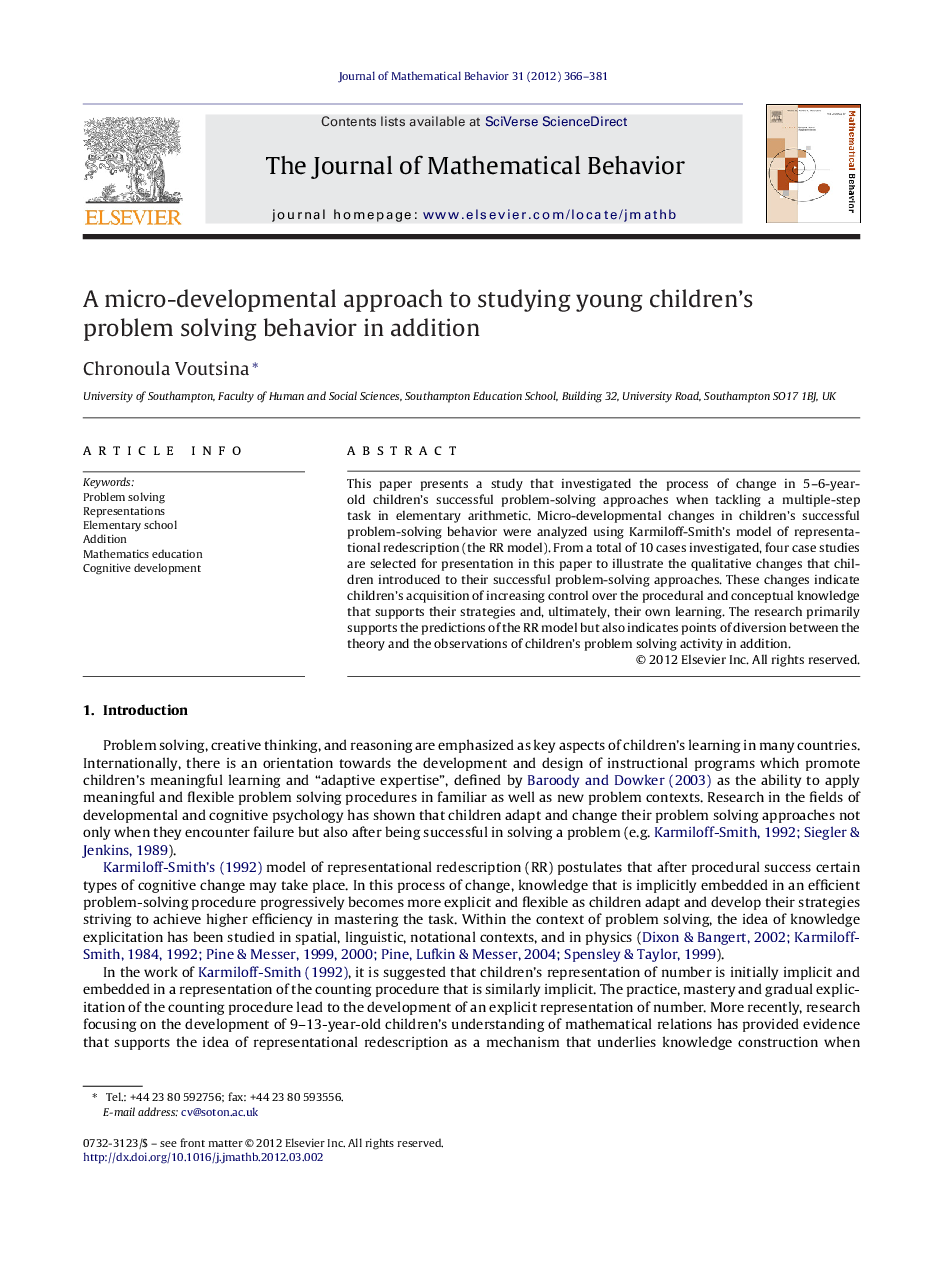| Article ID | Journal | Published Year | Pages | File Type |
|---|---|---|---|---|
| 360865 | The Journal of Mathematical Behavior | 2012 | 16 Pages |
This paper presents a study that investigated the process of change in 5–6-year-old children's successful problem-solving approaches when tackling a multiple-step task in elementary arithmetic. Micro-developmental changes in children's successful problem-solving behavior were analyzed using Karmiloff-Smith's model of representational redescription (the RR model). From a total of 10 cases investigated, four case studies are selected for presentation in this paper to illustrate the qualitative changes that children introduced to their successful problem-solving approaches. These changes indicate children's acquisition of increasing control over the procedural and conceptual knowledge that supports their strategies and, ultimately, their own learning. The research primarily supports the predictions of the RR model but also indicates points of diversion between the theory and the observations of children's problem solving activity in addition.
► The study analyzes changes in 5–6-year-old children's behavior in addition. ► The microgenetic method is used to explore post-success changes in problem solving. ► Young children adapt successful strategies to achieve higher efficiency. ► Post-success strategy changes indicate procedural and conceptual changes. ► The findings support some aspects of the representational redescription theory.
